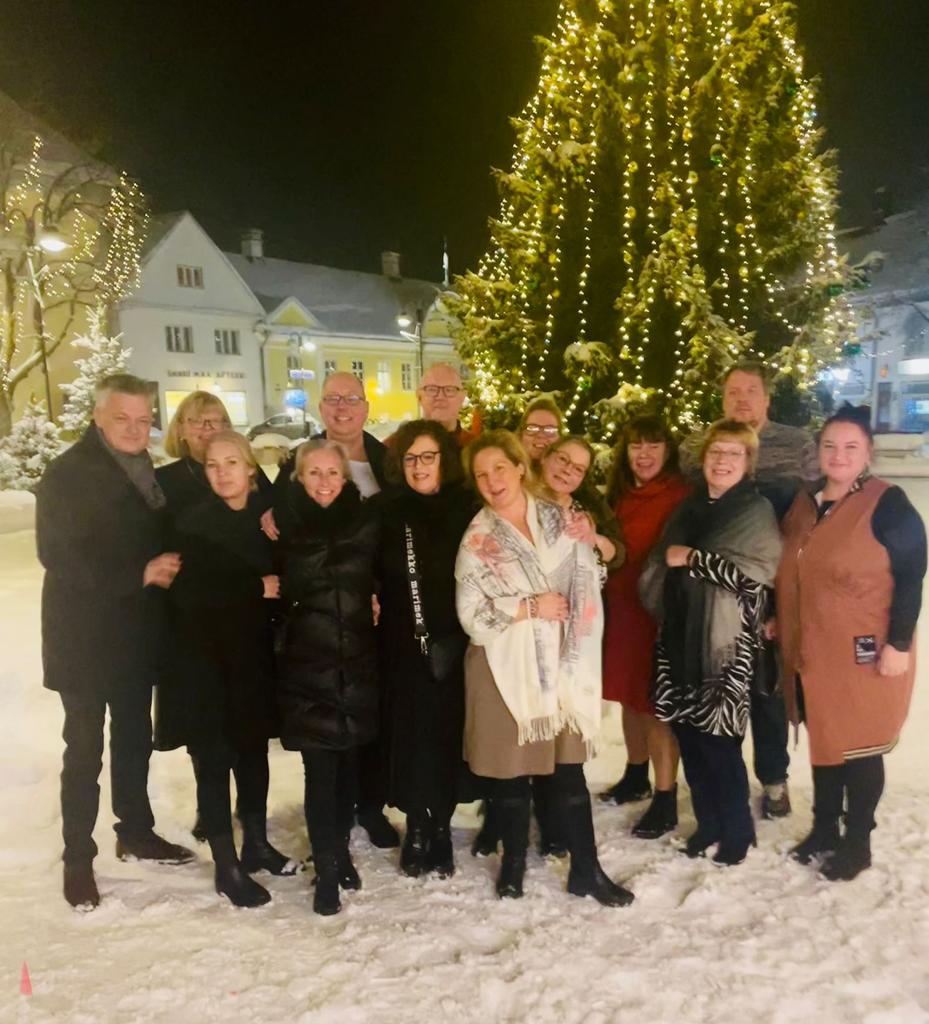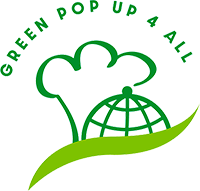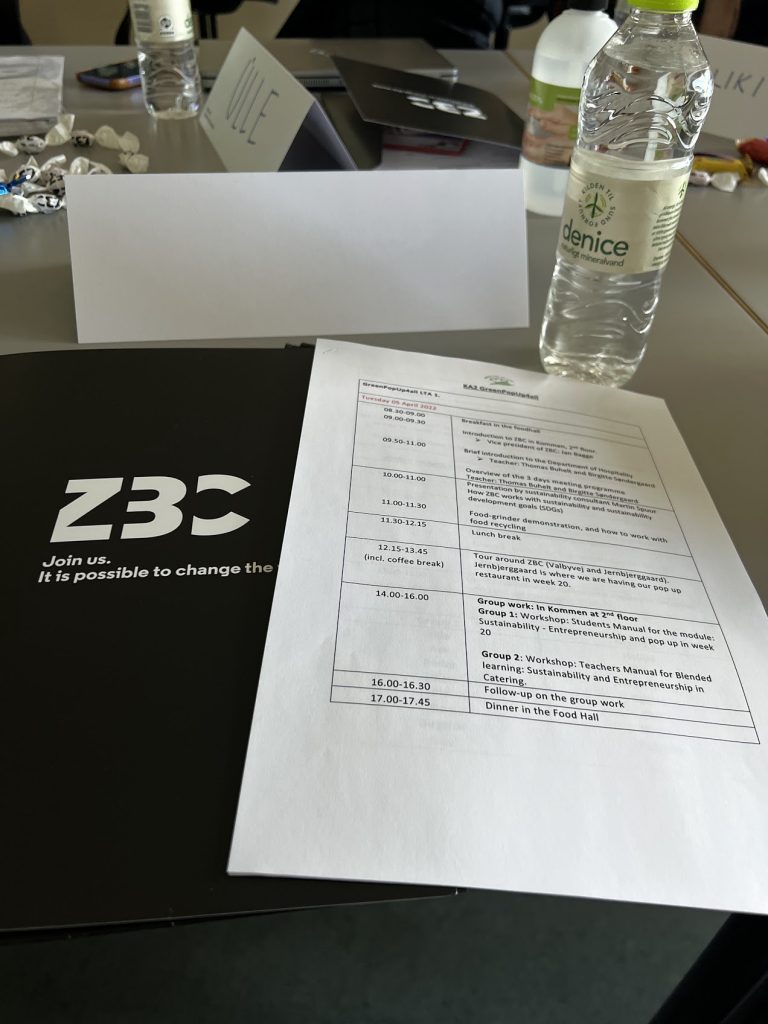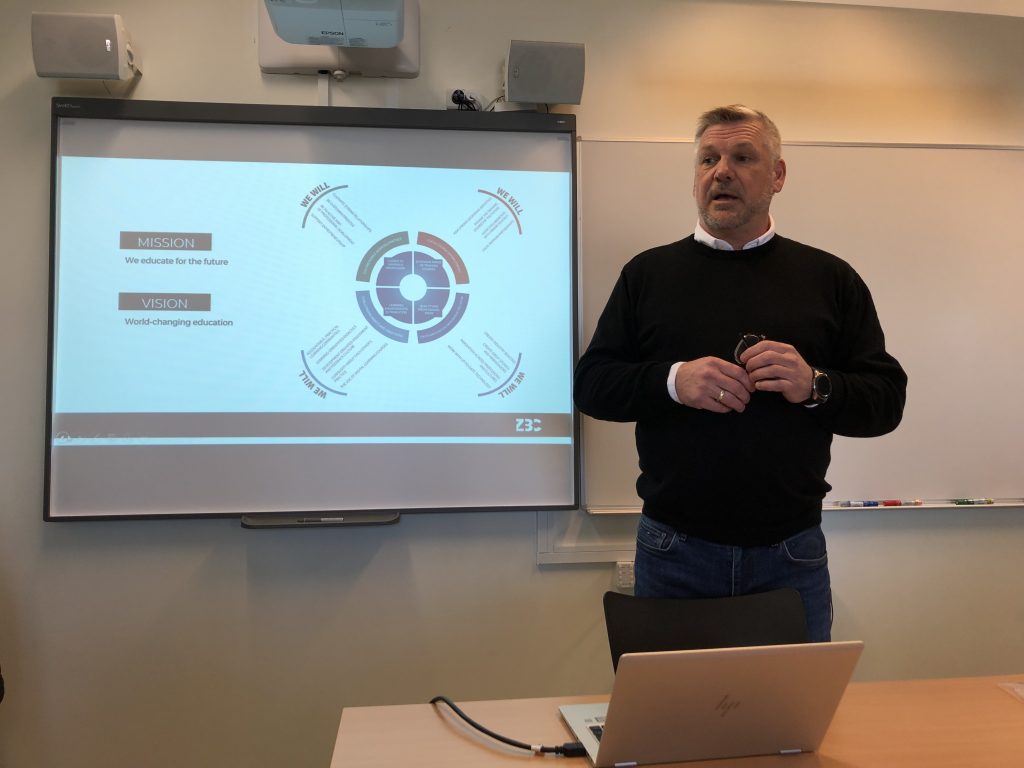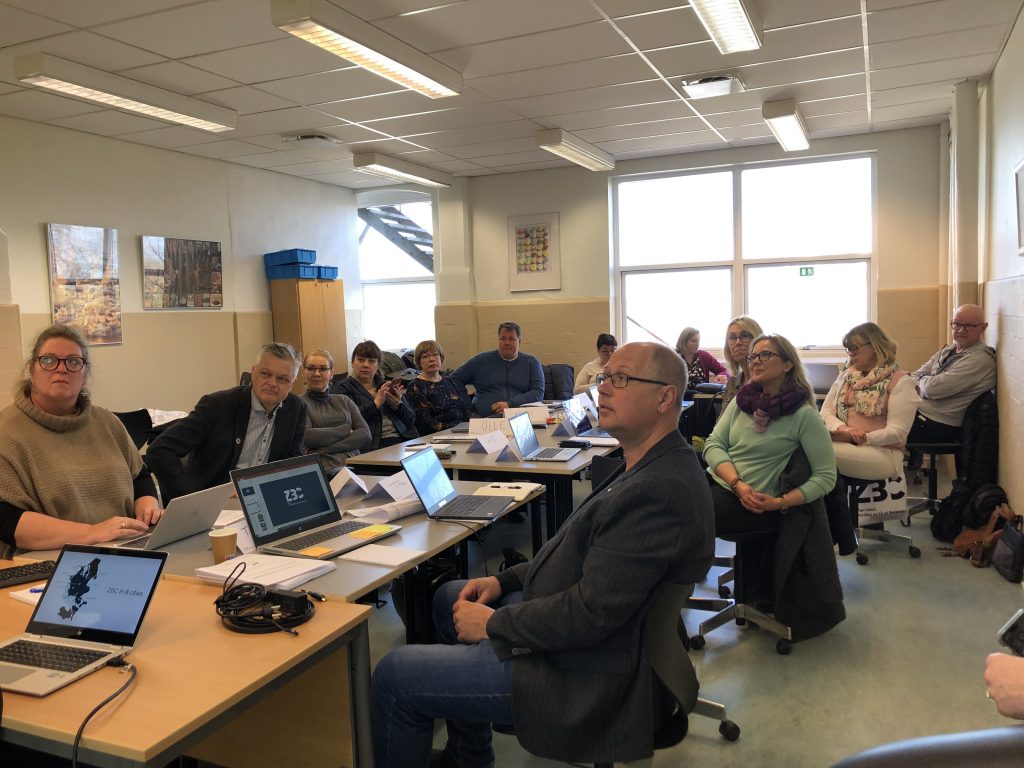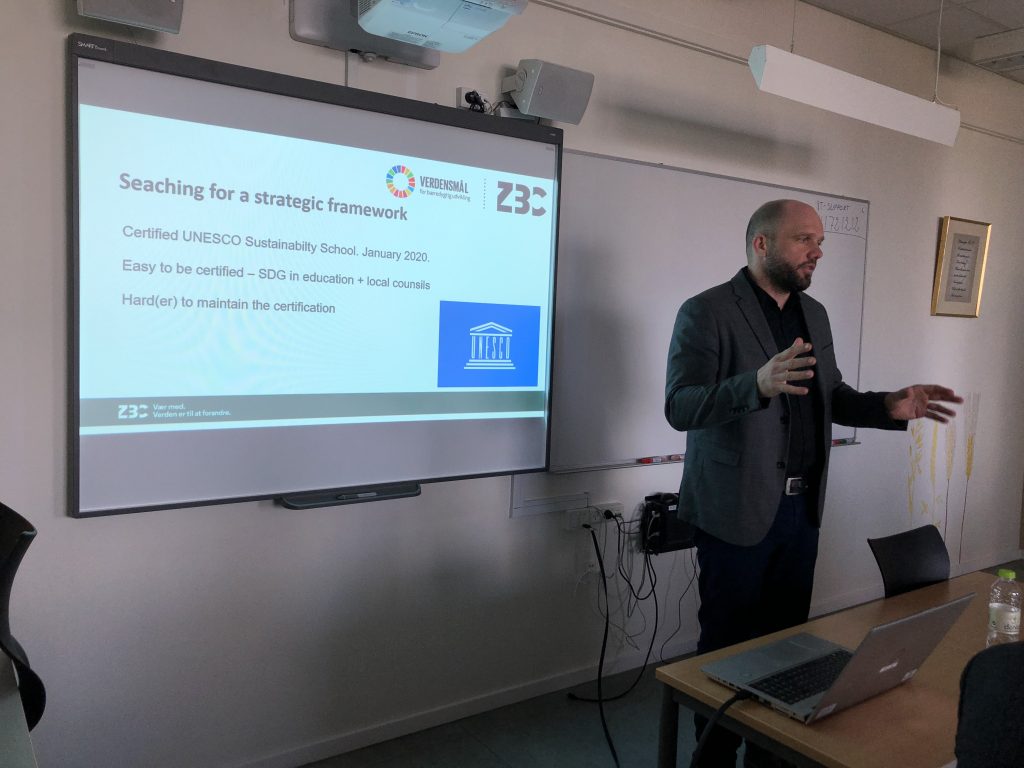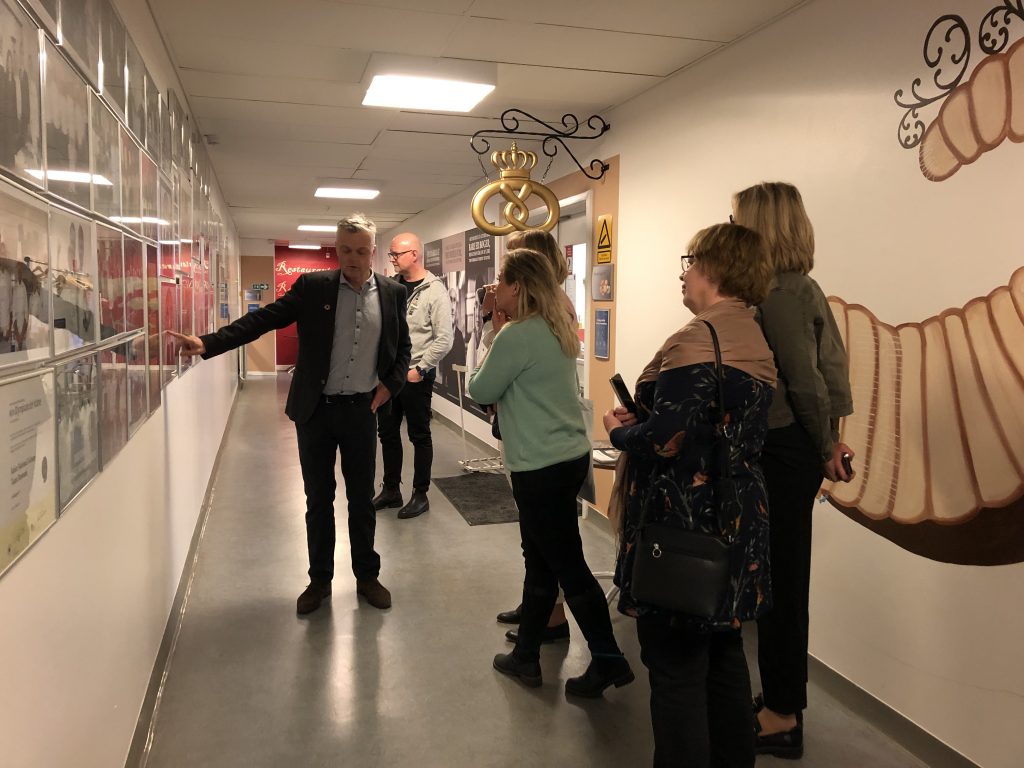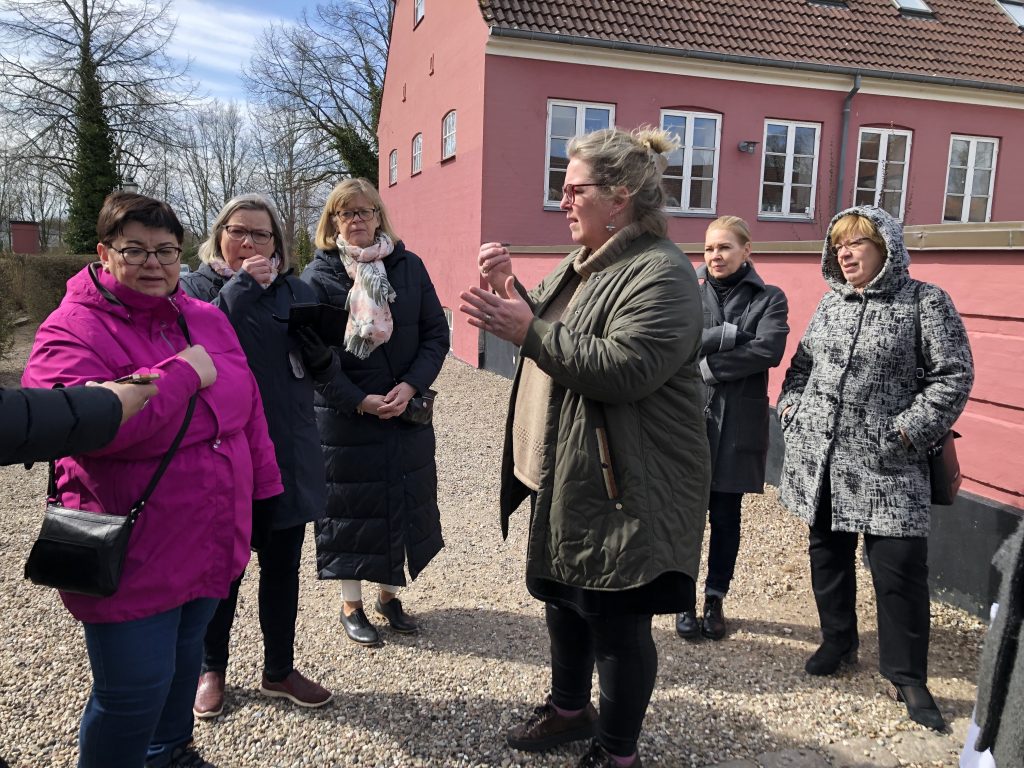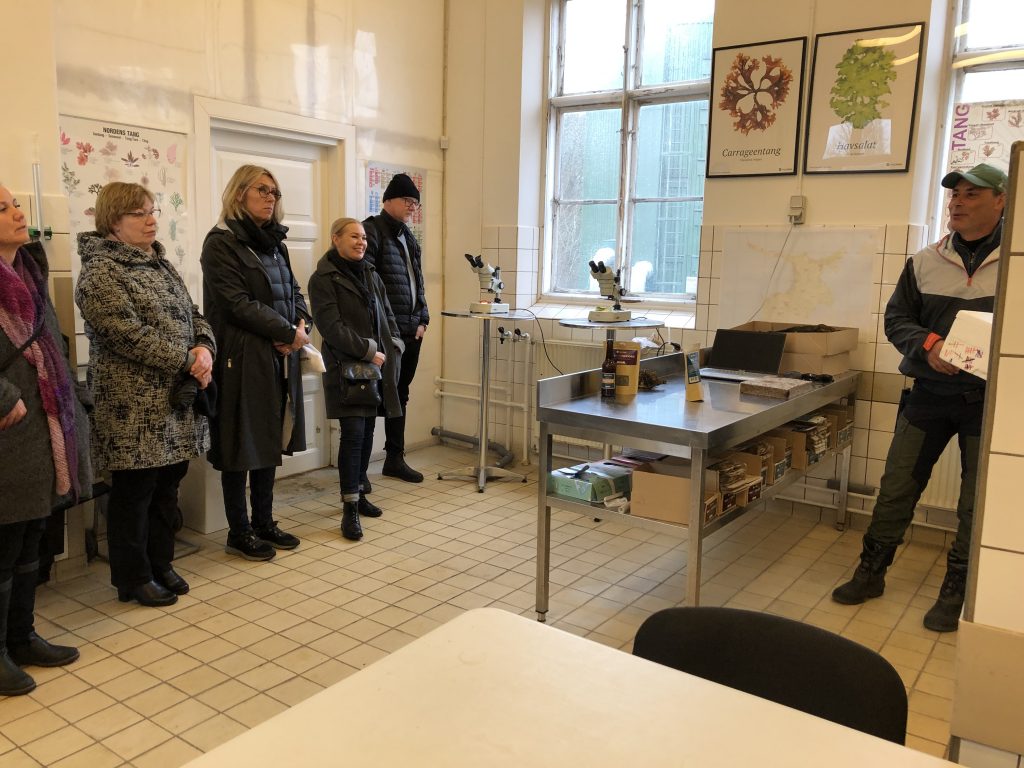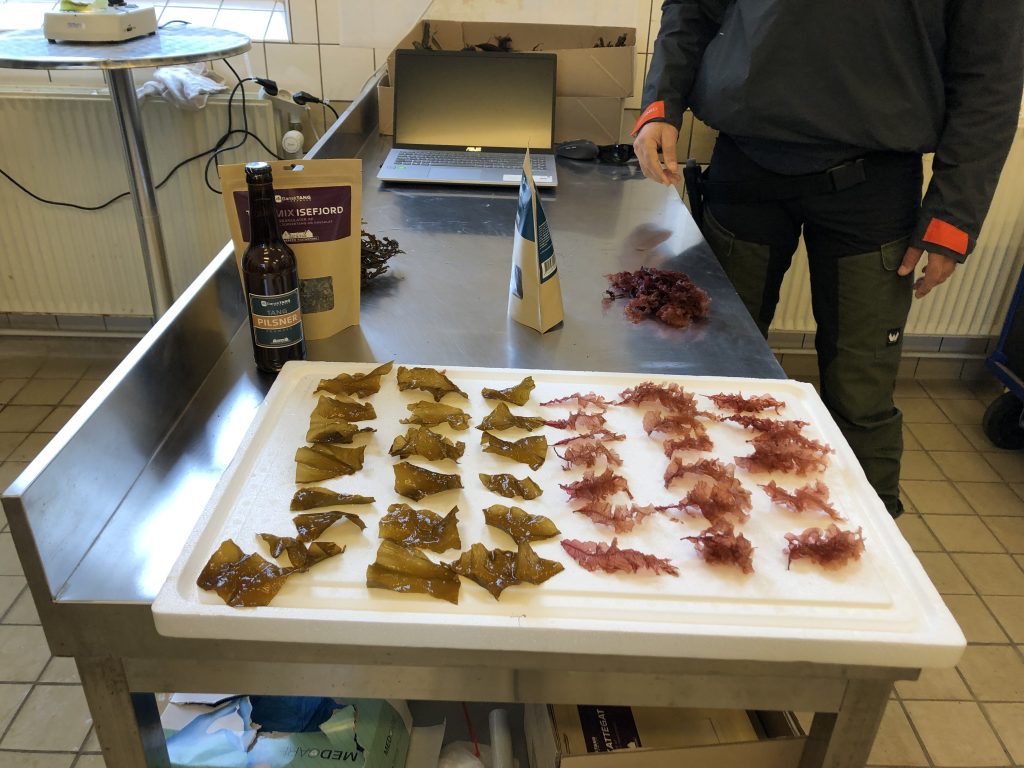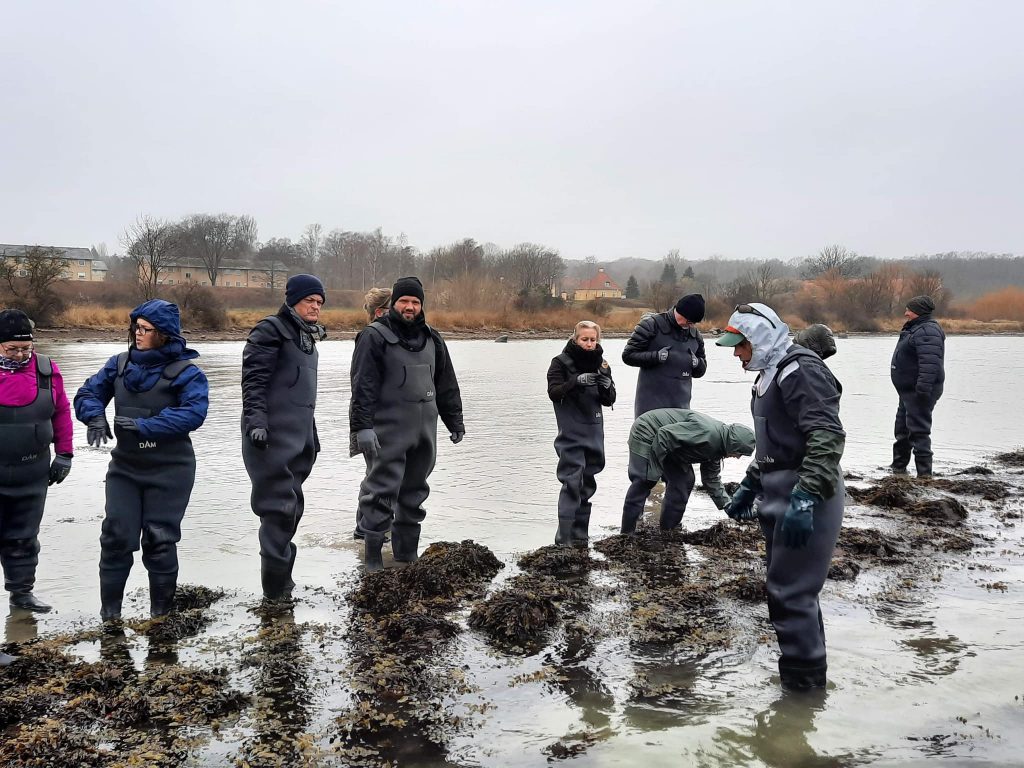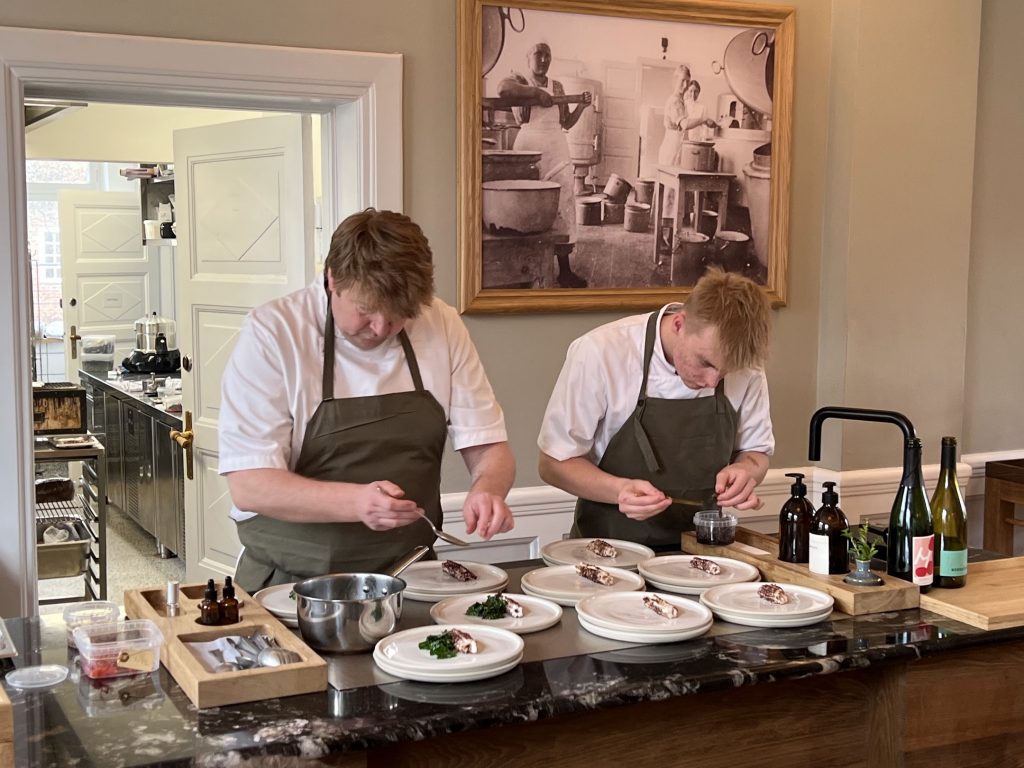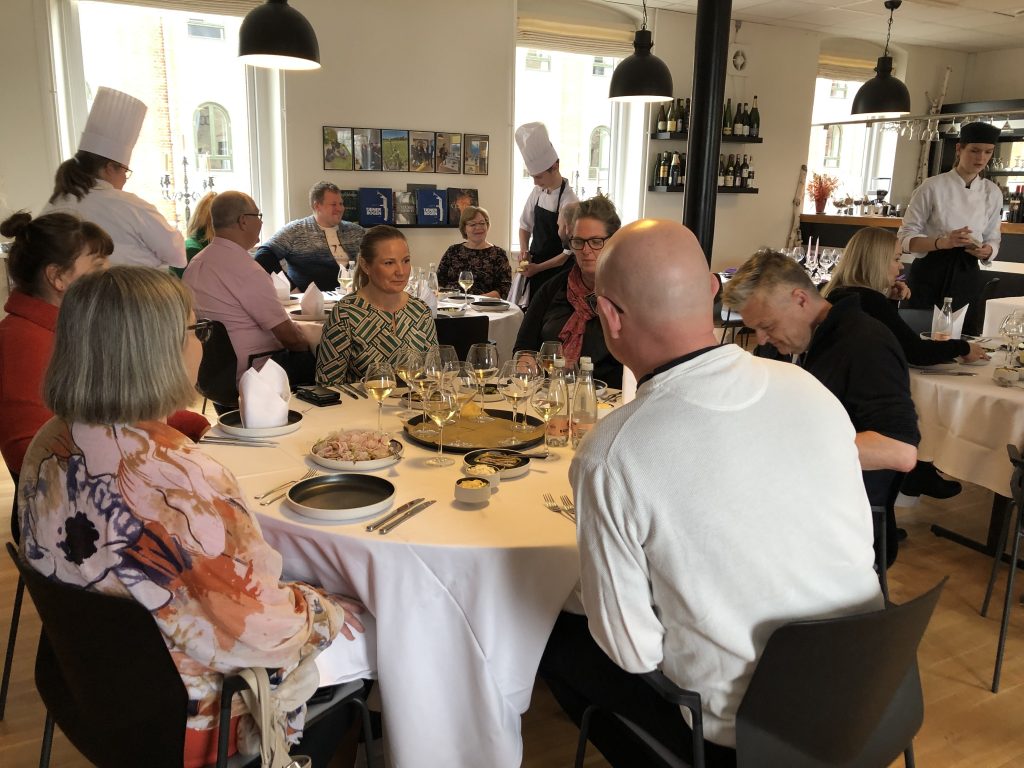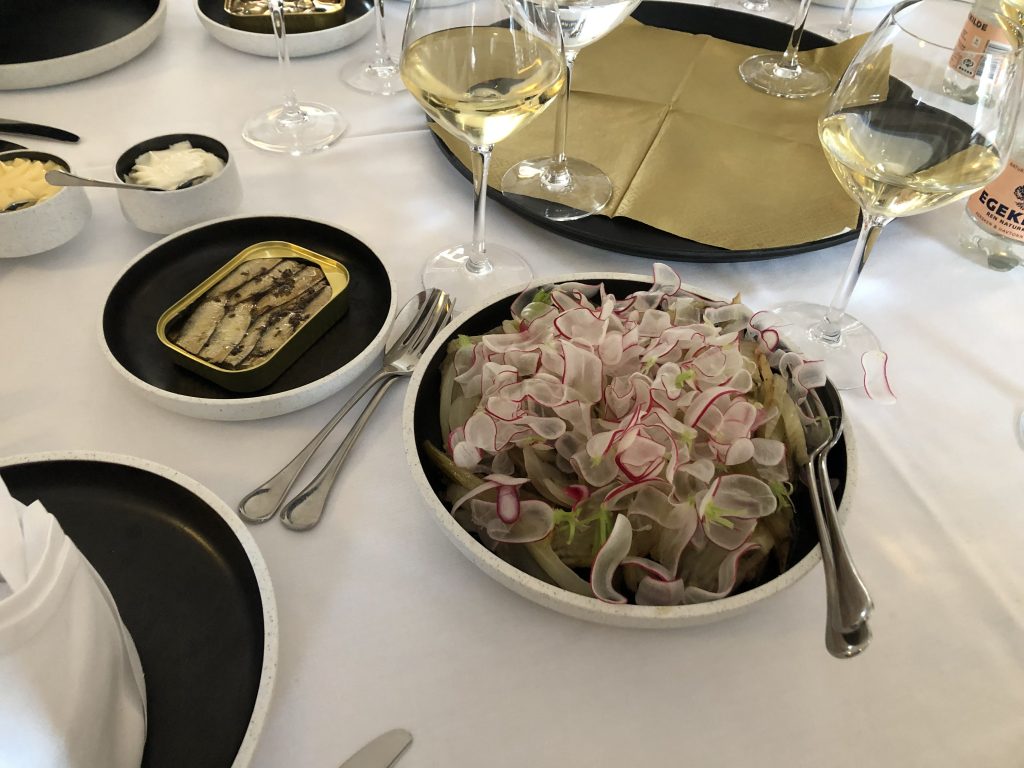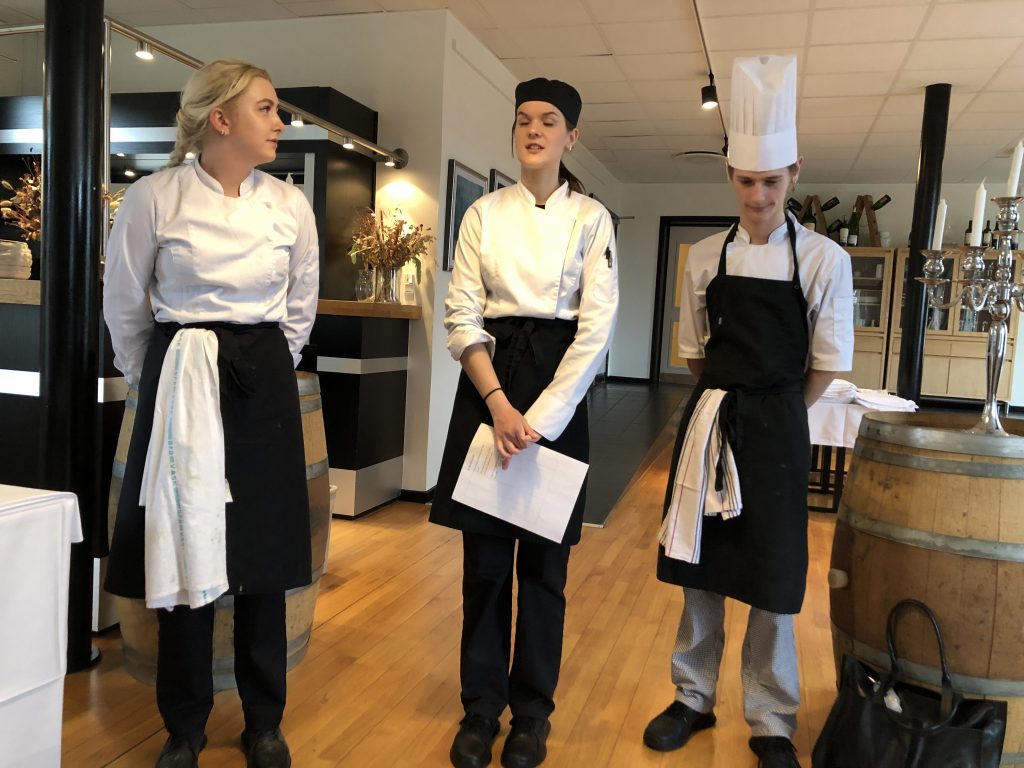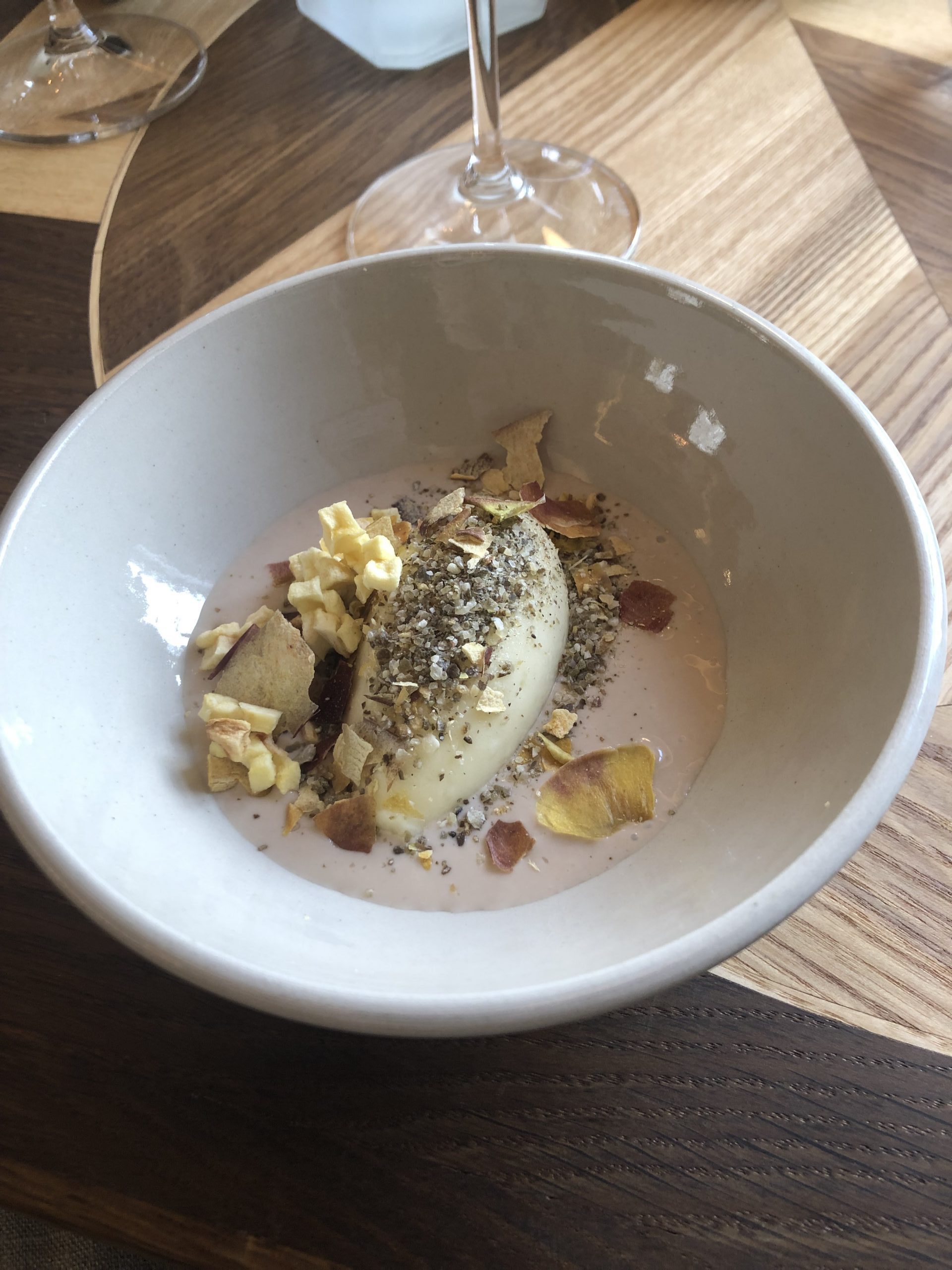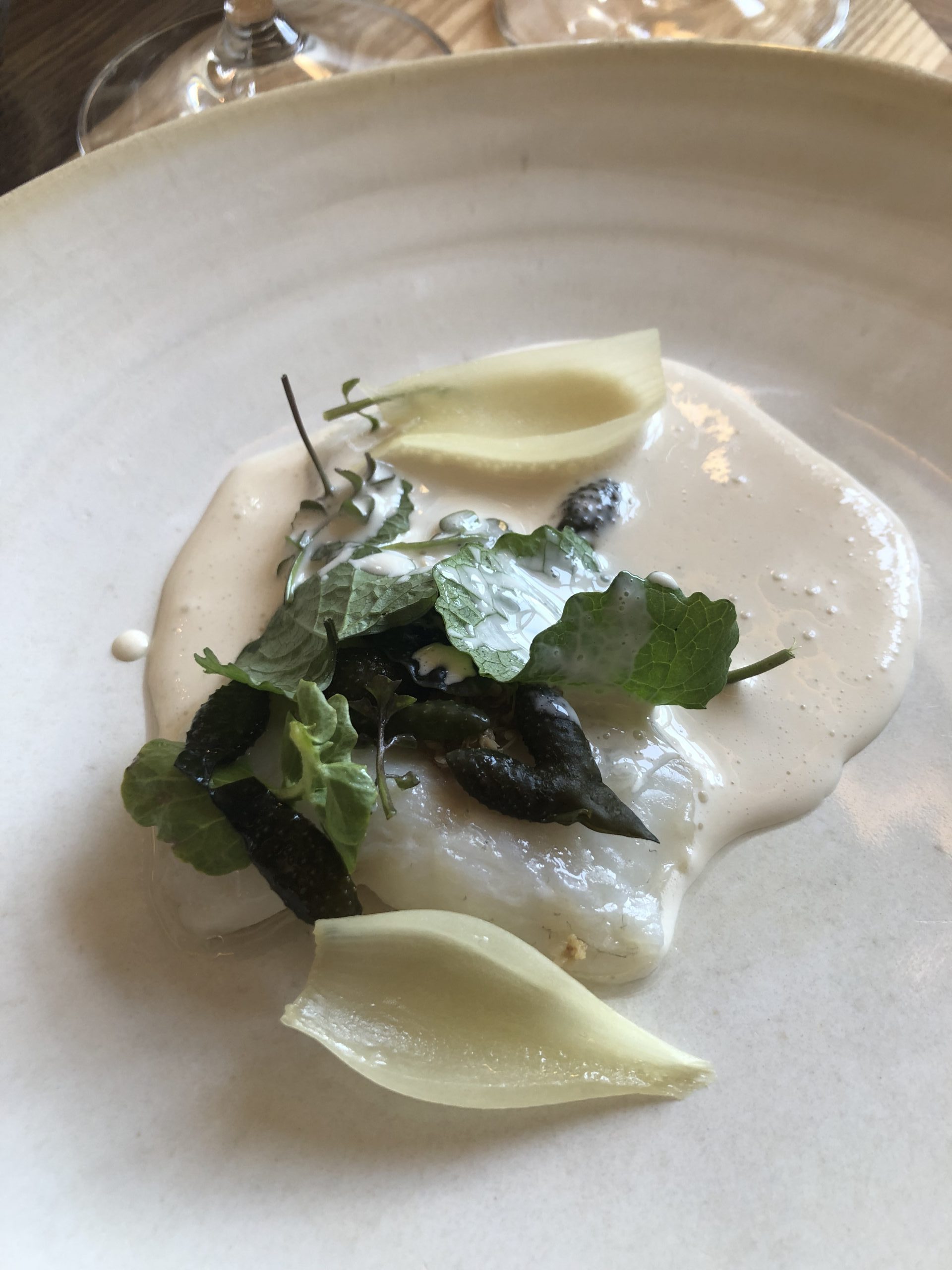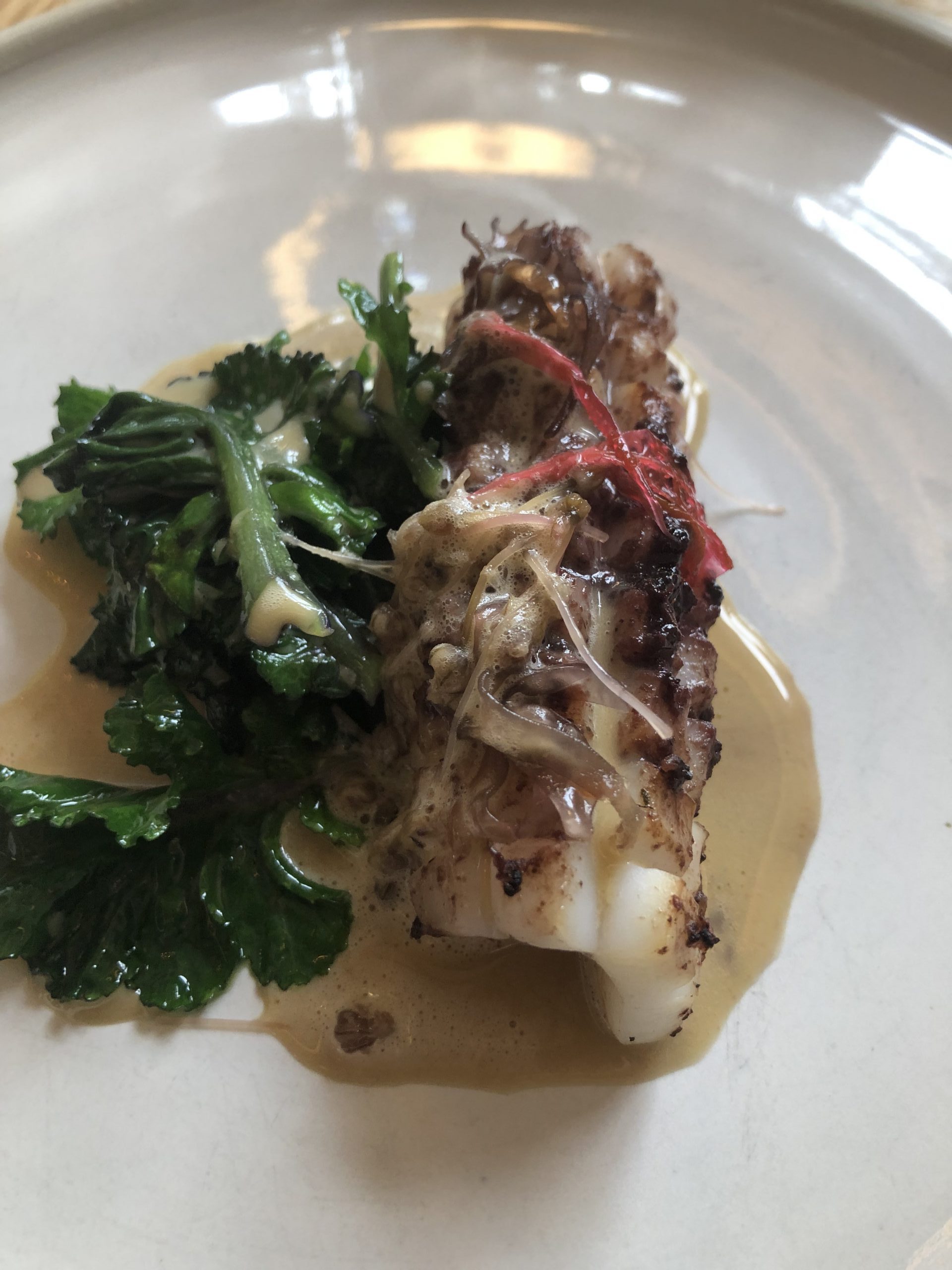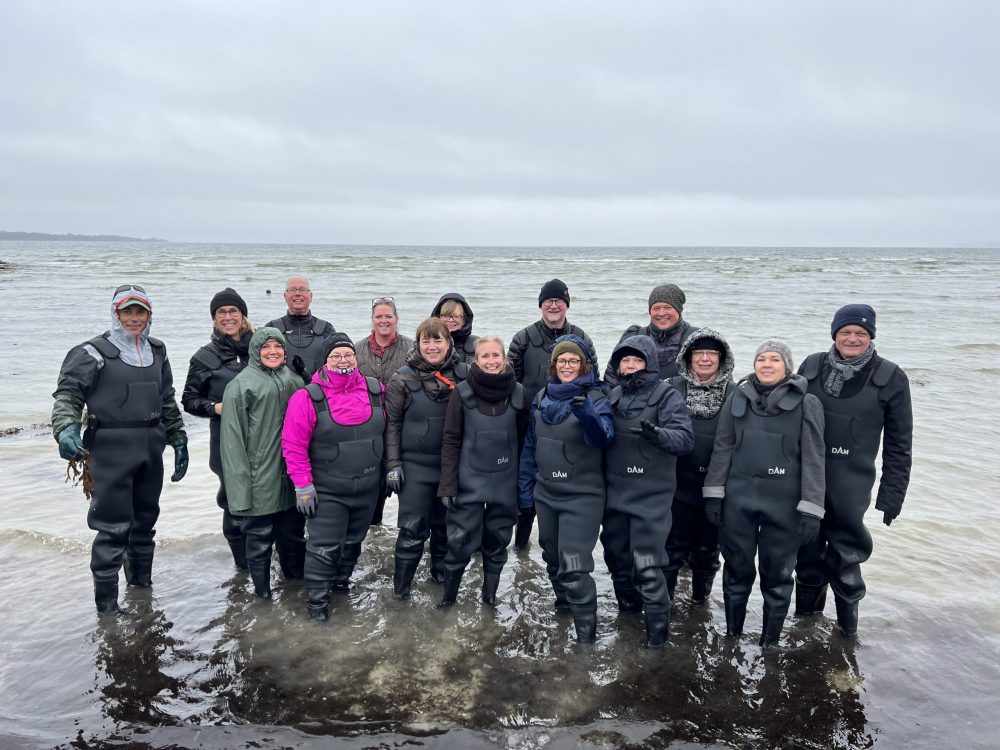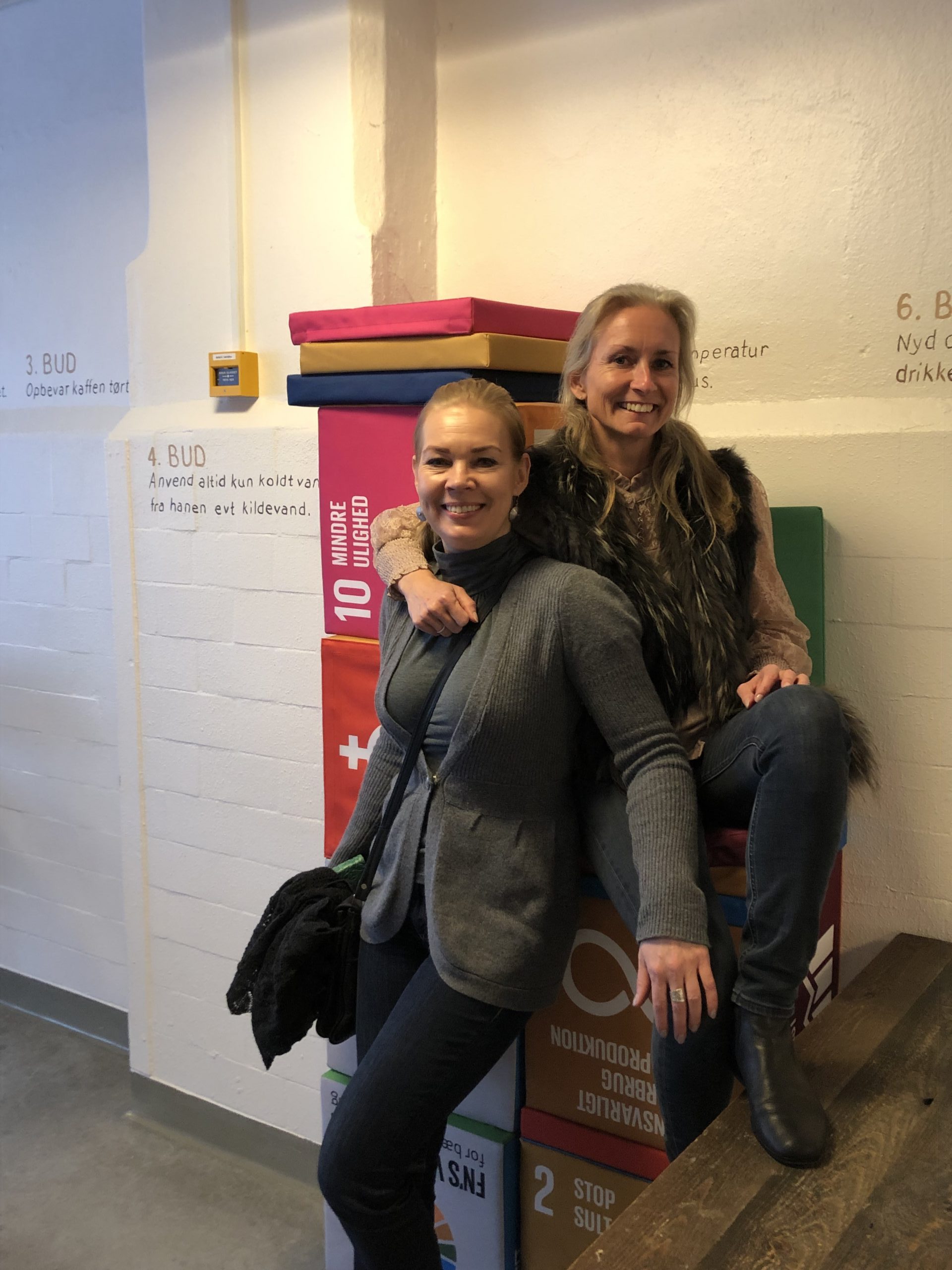A few days before the arrival of the guests, the winter fair took over the island. A strong wind swirled the knotted electric wires and generously sowed snow on storm-ravaged trees. We, as the hosts, were seriously afraid if the meeting would take place at all, because the connection with the mainland can be break under such circumstances.
In order to avoid a situation where teachers from Denmark, Sweden and Finland have to stay overnight at the port, it was decided to stay in Tallinn for the night and come to Saaremaa on Tuesday morning.
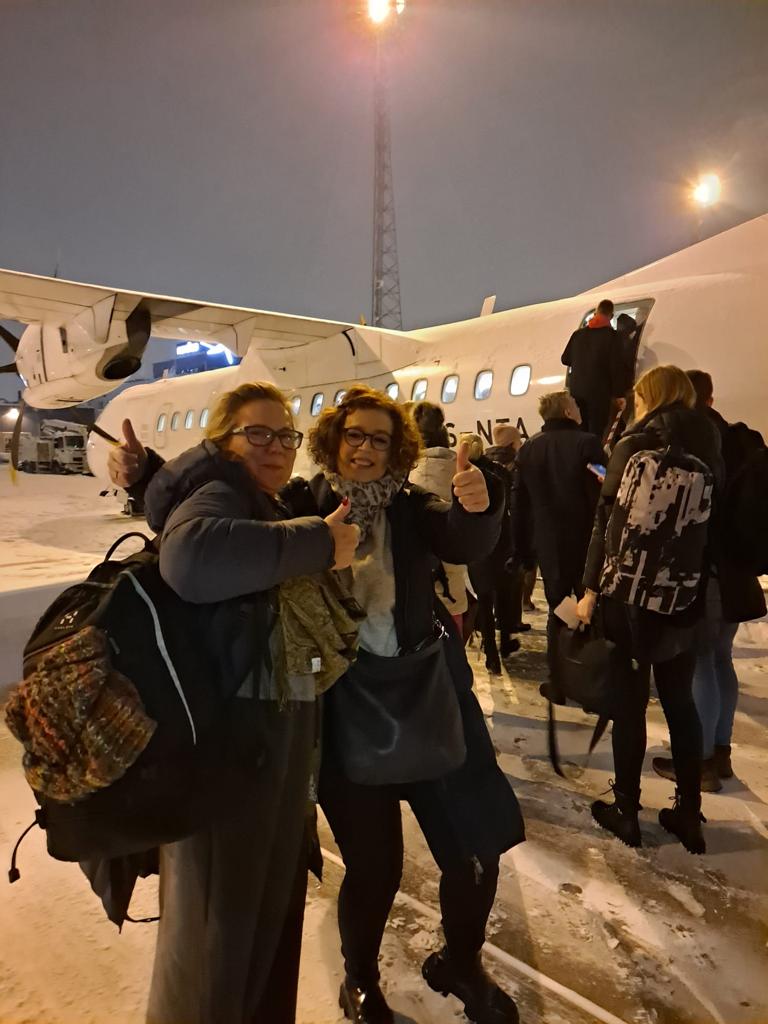
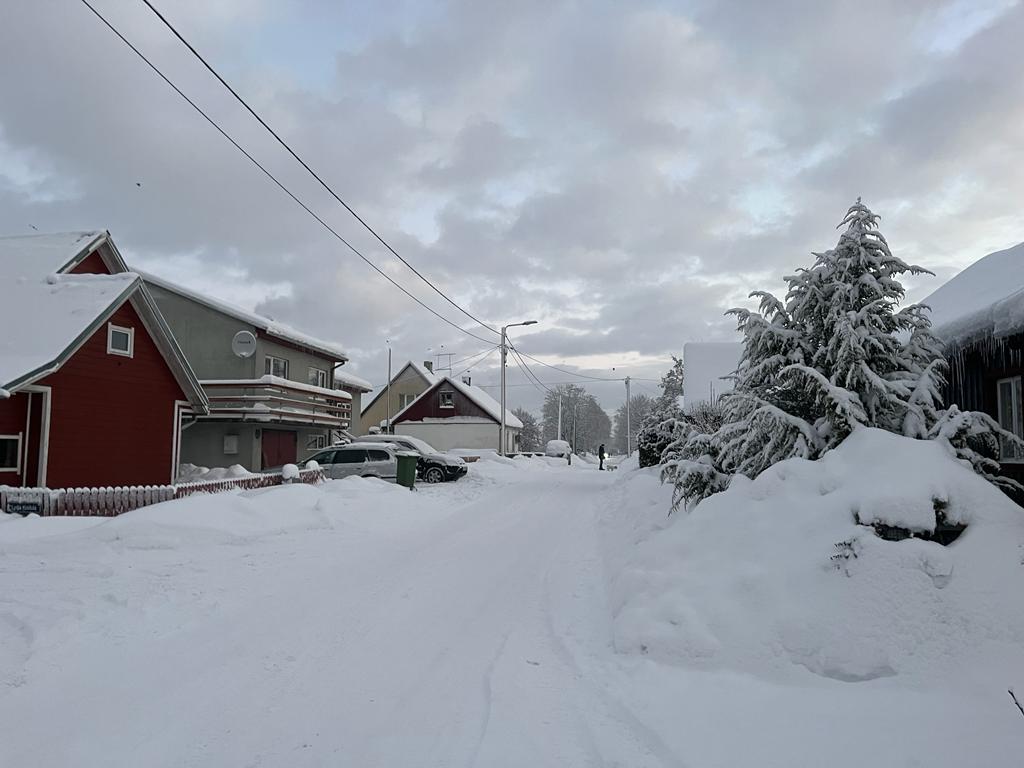
The weather was promising in the morning and we believed that the bigger concern was broken with it, but it turned out that our planned company visit to Pähkla Crayfish and Fish Farm could not take place, because the roads had become inaccessible and half of Saaremaa was without electricity.
Nevertheless, the joy of the reunions was great, and we managed to reorganise the agenda so that it would still be as useful as possible.
The theme of the Saaremaa meeting was Sustainable Gastroturism. Thus, we started by visiting the Saaremaa Genuine brand store. “Saaremaa Genuine Product” is a label that refers to the regional origin of a product or service – the product or service has been produced in the clean nature environment of Saaremaa and Muhumaa, with the work and experience of local people.
This blue area label has been used by entrepreneurs since the end of 2012 and helps the consumer to recognize the products made in Saaremaa municipality.
The “Saaremaa Genuine Product” badge is a sign of a person-centred way of thinking. The sign does not just talk about what Saaremaa is like, but what a guest, fan or buyer gets. Read more: https://ehtne
After that we had lunch prepared by our students and teachers in school restaurant, where we can offer food which is made of mostly local ingrediants.
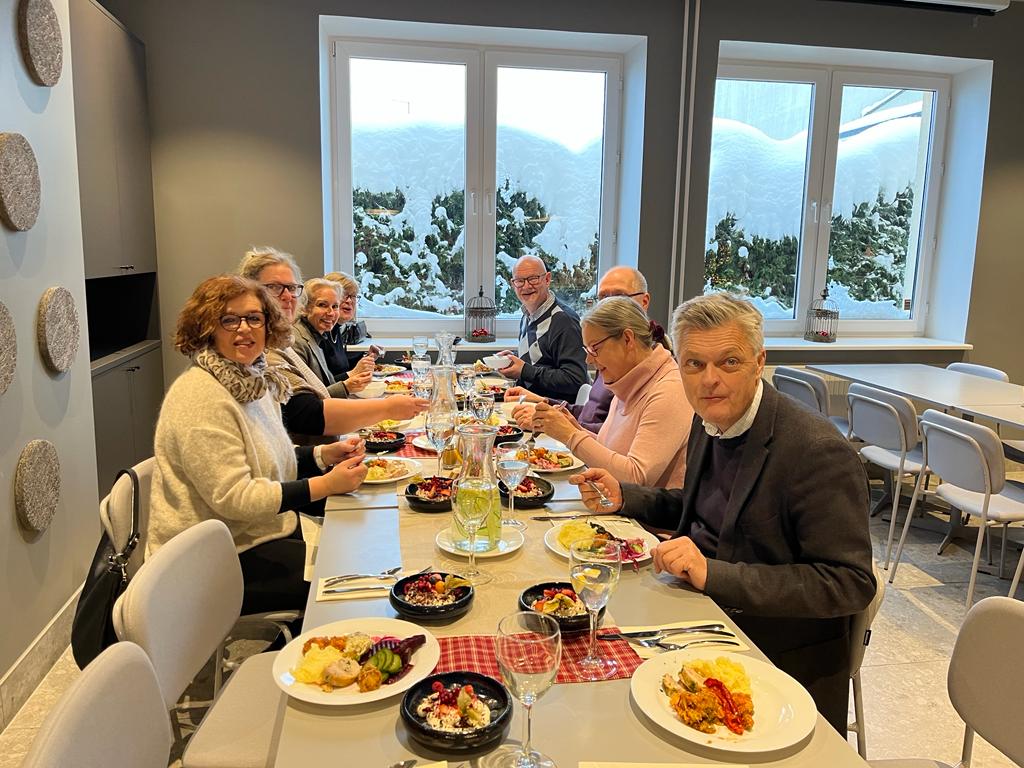
On the second half of the first day we had company visit and lecture by Kaupo Pastak who introduced to us the story of Veski windmill, one of the most beloved restaurants in Kuressaare. Itś operating since 1974 and nowadays itś not just restaurant, but it giving you an idea of Estonian national food, culture and heritage.
The co-owner of the mill, Kaupo, produces his own drinks. Saaremaa Veski’s house spirits are made from berries picked by the island’s grannies. The selection includes nice island flavors: rhubarb, sea buckthorn, lingonberry, blackcurrant, blueberry, rasberry, strawberry, cherry and chokeberry. They also advertise them as
the very tasteful, healing, depression-lowering gift idea for treating fashionable diseases.
Kaupo gave as short history lesson of Veski windmill, the story how the place have been grown, how more and more additional services are on their tabel. Talked about gastronomy and passion. The lecture ended with degustation with very detailed description of how the raw material gathered and how the tastes and colours develop within the time.
Read more: https://saaremaaveski.ee/
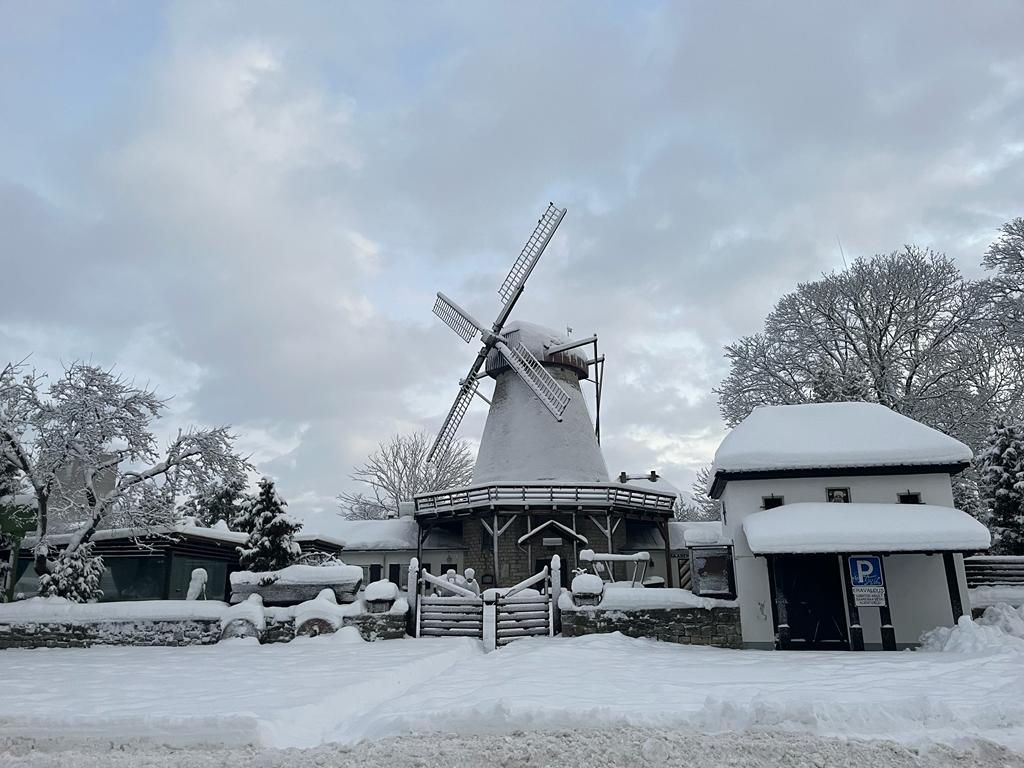
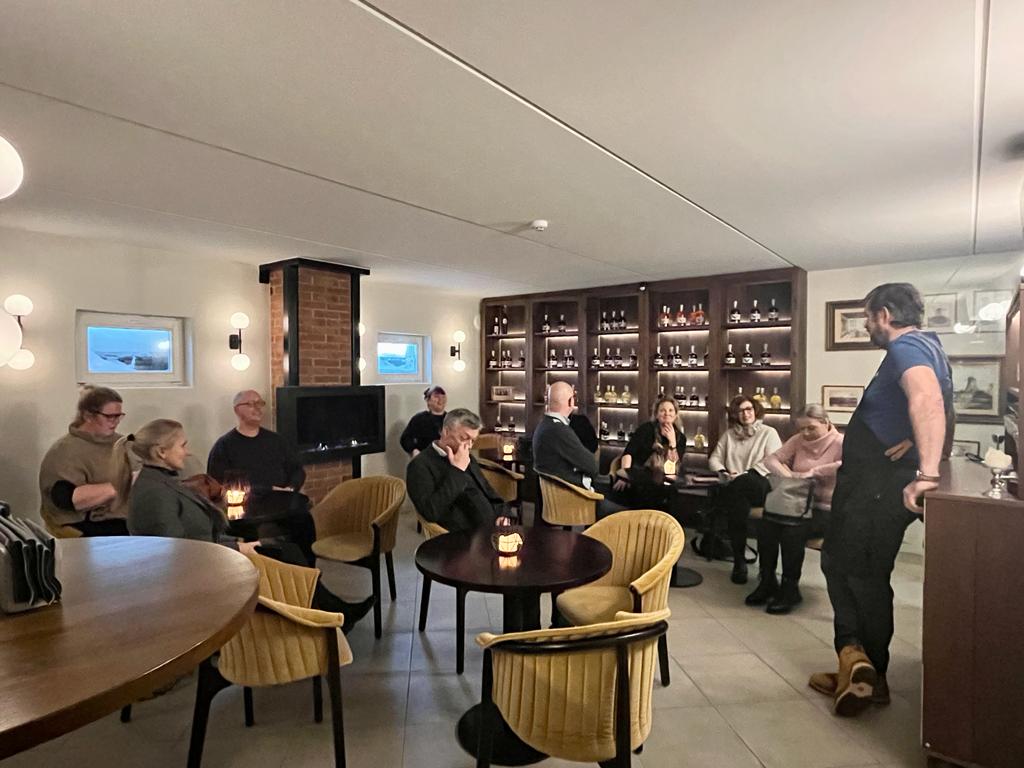
The first day ended with lunch at Grand Rose restaurant , which is recommended by White Guide Nordic 2022 as well. Chef has prepared menu that offered a choice of dishes which describe Estonian and island specialties.
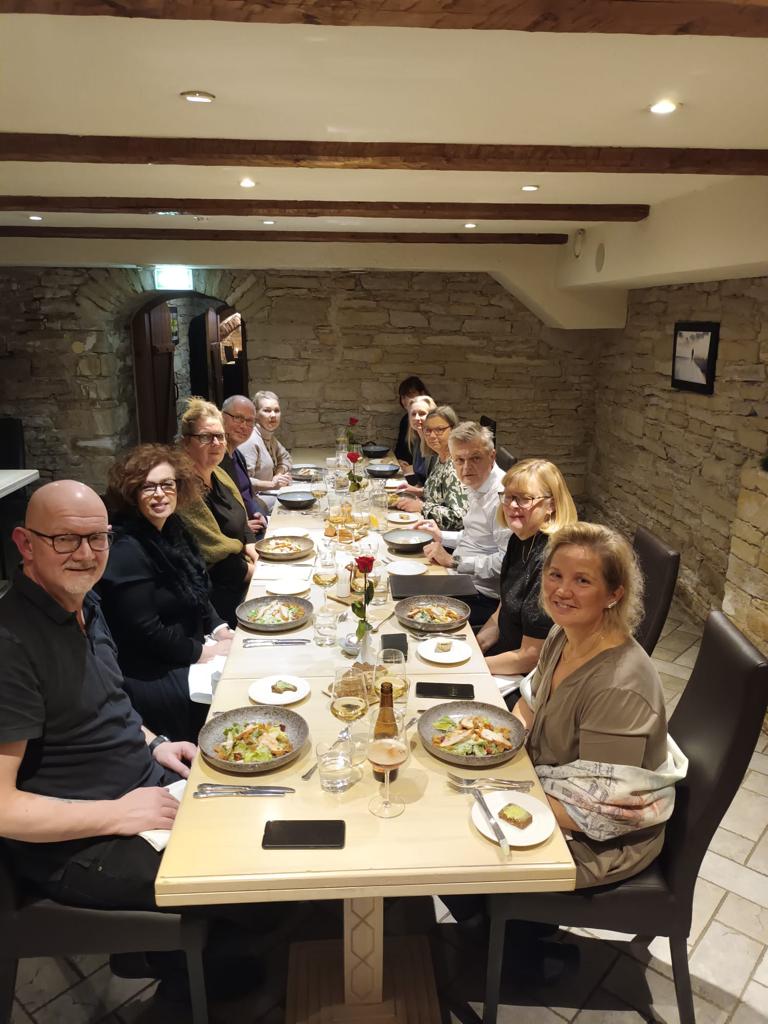
By the end of day it was clear that this team can´t be beaten by weather 😊
Next day started early and itś keyword was: blended learning module. Teachers from 4 countries discussed and developed the learning module and itś content for next piloting session. Kuressaare team presented the draft of week 17 POPUP event.
In the afternoon we had hands on workshop on sustainable gastronomy. Teachers were working on mixed teams on common task, using local products for cooking traditional meals in modern key.
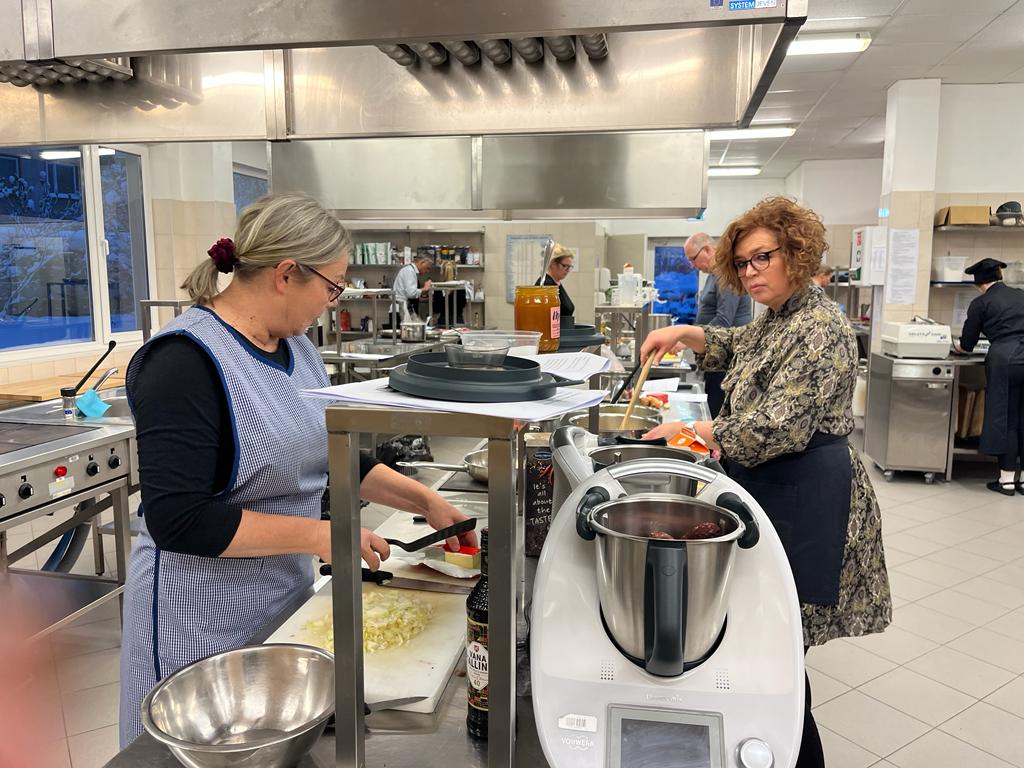
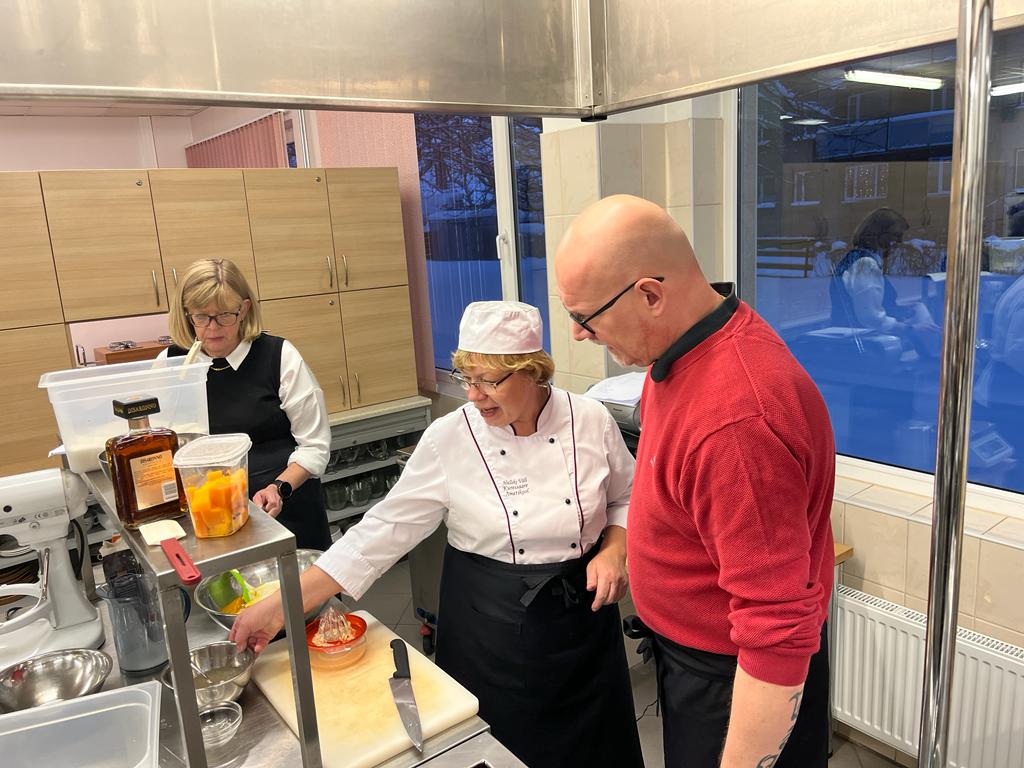
The third day was devided in several parts. For starter we had interesting and inspiring lecture from Mare Kallas about small entrepreneurship, gastronomy, preserving heritage, collecting memories, sewing the fairy cloaks, ect. The lecturer is also the author of cooking book „Laimjala maitsed“ (The tastes of Laimjala) where the traditional meals and stories from old time are preserved.
Follow: https://www.facebook.com/Noodadesign/
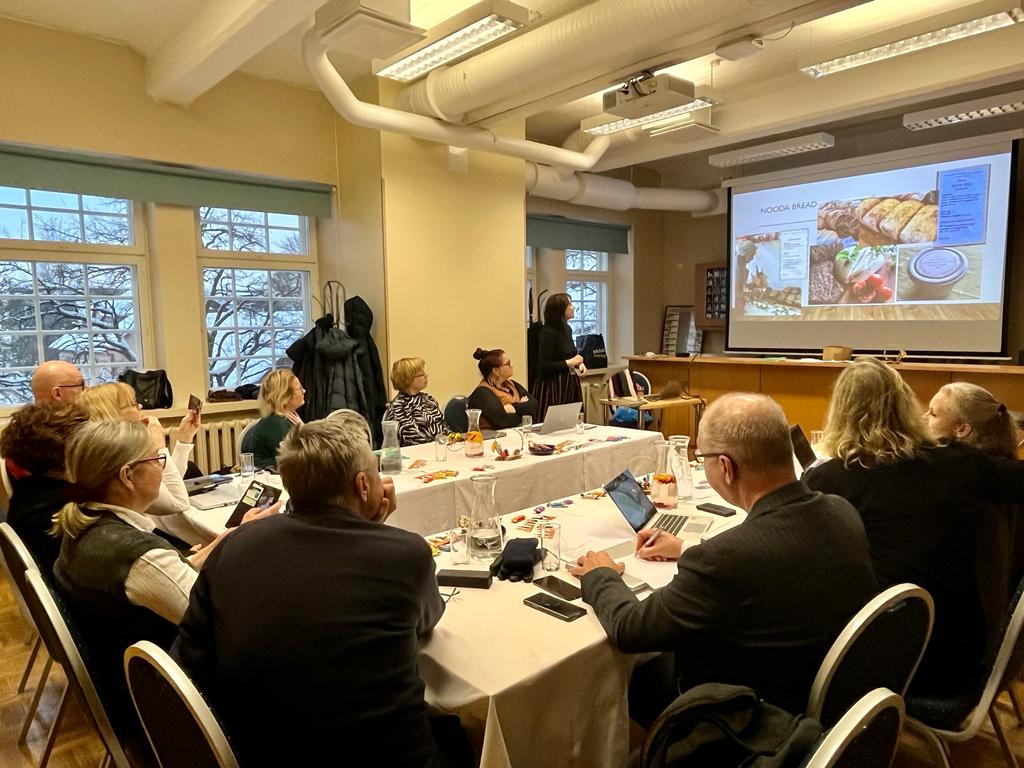
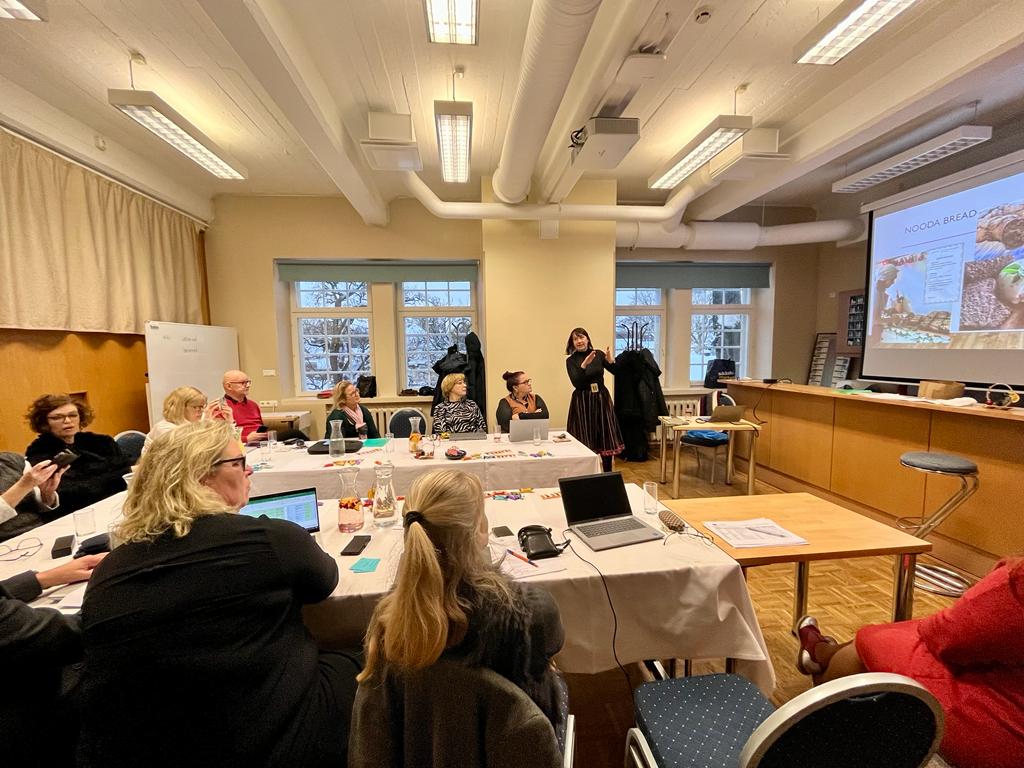
The main course for Thursday was Teacher Manual and Moodle course. Work was going in several teams and by the end of the day we were happy to say that the progress was made.
Kuressaare Ametikool has been working for almost 3 years on Interreg IVa project Educating Professionals on Islands in GastroTourism to develop the gastrotourism curriculum with Alands Yrkesgymnasium. Now itś ready!
The main reasons for developing a curriculum for gastronomical tourism is the lack of good image and lack of work force and challenges in the sector. The tourism season is short and the staff in work need further educating, they are quite often not educated for a job within tourism and gastronomy, but they have microbusinesses or SME:s and therefore no possibilities to take on full time studies. This curriculum will help these adults get professional training in a flexibel way. The curriculum will be implemented in both adult and youth studies, and it can be both mandatory or voluntary. The curriculum is very flexibel and useful. For adults the curriculum can be arranged during evenings and weekends if needed.
Get aquinted: https://www.gymnasium.ax/alands-yrkesgymnasium/projekt-vid-yrkesgymnasiet/epig-educating-professionals-islands-gastrotourism.
And then the time for final dinner and fairwell approached. The feeling was good and we felt so much more ready and motivated again! See you in Kuressaare again, in week 17. Hopefully not so snowy island any more 😀
